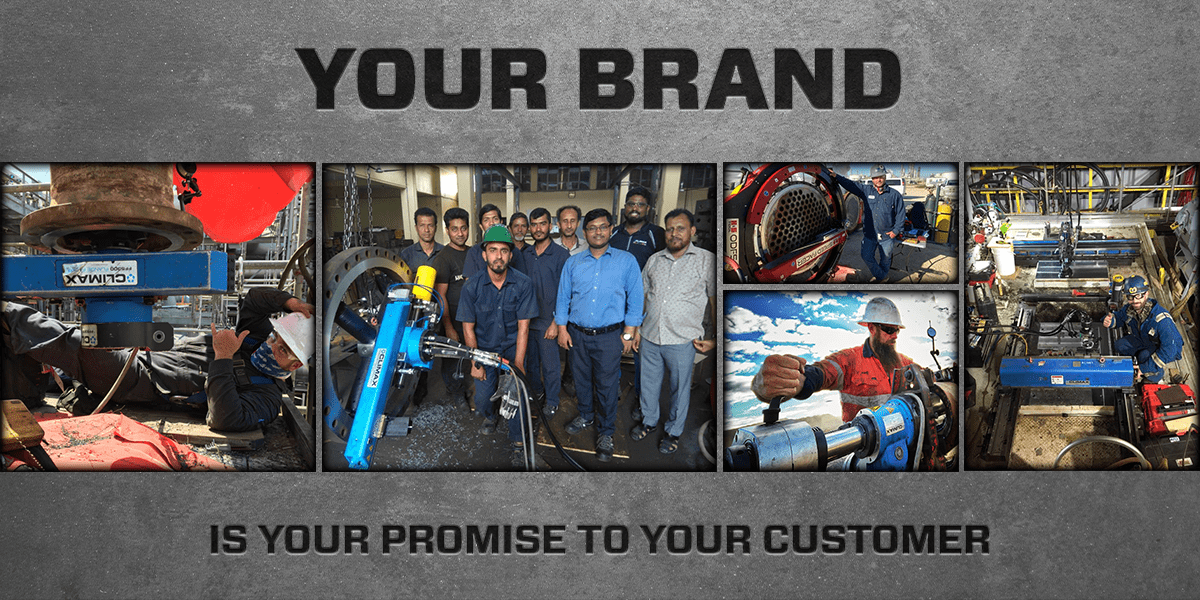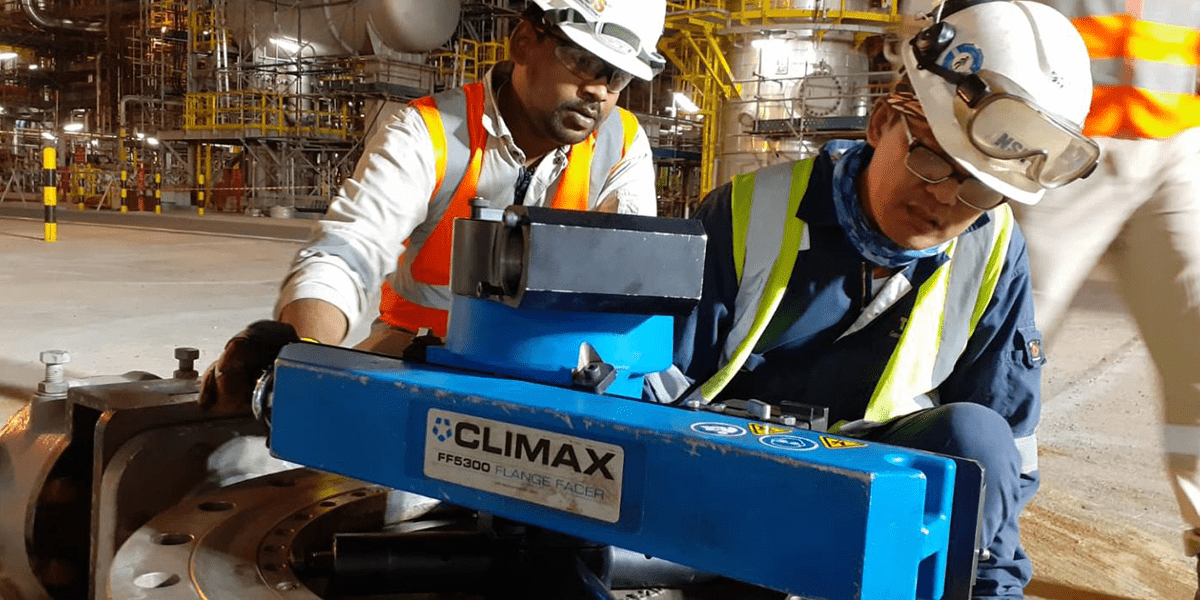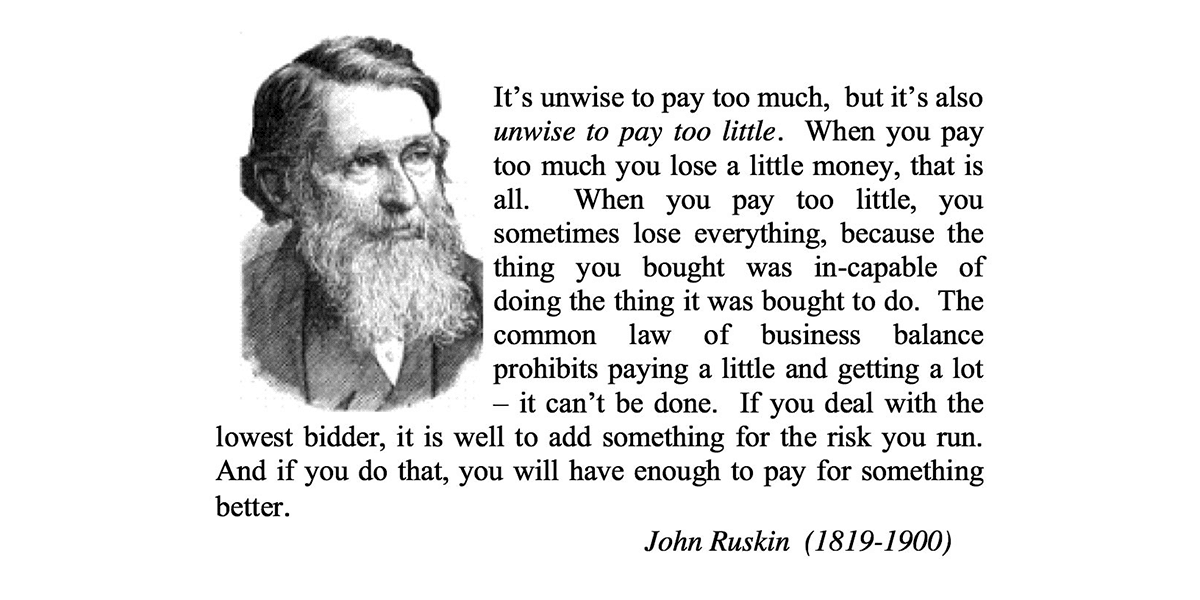
19 Oct WHAT DO THE TOOLS YOU USE SAY ABOUT YOUR COMPANY?
By Dave Baker, Corporate Vice President of Sales and Marketing at Climax Portable Machine Tools
Catastrophic events like refinery fires or deadly explosions in processing plants underscore the critical importance of our dedication to protecting our staff and our valuable assets. To ensure operational excellence, employee safety, and future expansion, the tools and practices you deploy should reflect your company’s commitment to achieving those goals.
Industry-leading repair and maintenance tools are commonly designed to:
- Increase your employees’ productivity.
- Deliver quality work the first time and on time.
- Strengthen your brand’s reputation.
- Improve your competitive position.
- Strengthen your relationships and customer loyalty.
For mission-critical jobs, project success depends on the tools you choose to furnish your technicians with. These choices not only symbolize your company’s brand but also reflect your operational strategy and overall approach to performing the work correctly and on time.

Are you committed to setting your employees up to win by giving them access to the best available tools?
Entrepreneur Magazine defines branding as “Your promise to your customer. It tells them what they can expect from your products and services. Your brand is derived from who you are, who you want to be, and who people perceive you to be.”
Companies truly committed to their employees, assets, and customers will continue to invest in utilizing safe, well-made, and reliable precision tools backed with a commitment to operator training, resulting in an excellent reputation and the likelihood of earning their customers’ loyalty and longtime success. In other words:
- If your company uses quality tools, your customers should expect to pay a premium for your services because it shows your company invests in the latest technology and is committed to the overall quality of the work done right the first time and on time.
- If your tools are clean and properly maintained, rest assured that your customers will think your company is serious about keeping the performance advantages of those tools and supporting the employees who take care of the equipment.
- If your tools are technically safer than your competitors, your customers will know your company is committed to safety. And the work performed will reduce some or even many safety risks, keeping your employees and others safer.

If your company is committed to using the best available tools, it’s much easier to recruit the industry’s best talent, set them up for success, and exceed customers’ expectations.
How much savings is worth the risk of jeopardizing your employee safety, assets, customer relationships, and future work? Five percent? 10 percent? 25 percent? How many people get hurt, brands compromised, dollars wasted, and jobs lost due to short-sighted, low-priced purchasing decisions?
If the goal of purchasing a precision tool is to create additional value for your company, then you should evaluate the value-creating impacts of the tool first. Purchases should be assessed on the tool and the OEM’s ability to meet or exceed your business requirements. Tool quality, reputation, past performance, ease of use, and OEM support and experience should all take precedence over the lure of a low price and the temptation to cut corners.
Industry-leading companies are branded as such for a reason. They understand their brand and reputation are built on the foundation of a strategy committed to setting their employees up for success by offering continuous training and investing in the safest, most productive, and highest-quality tools available.


